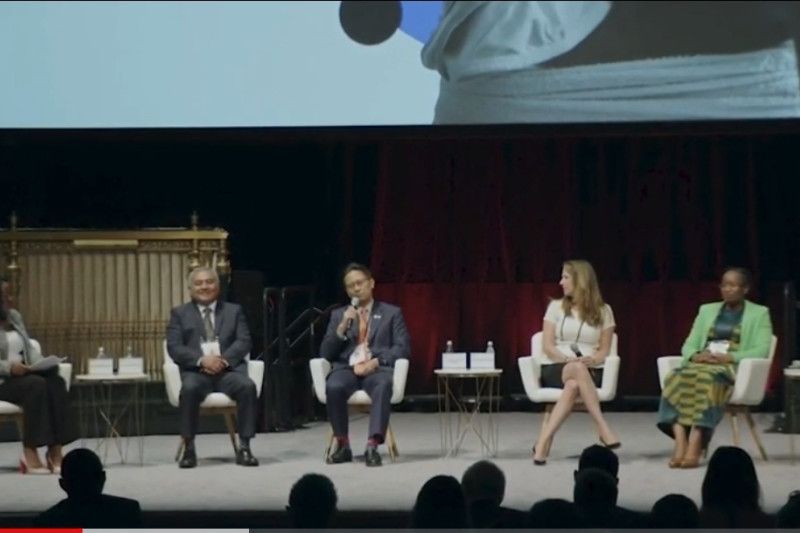With the sequencing of the genome, the genetic model of the genome will be obtained
Jakarta (ANTARA) – Global Fund, partner for health development, has disbursed a total of Rp 20.89 trillion to help Indonesia achieve its goal of eliminating HIV / AIDS, tuberculosis and malaria .
“Efforts to achieve the goal of controlling HIV / AIDS, tuberculosis and malaria must be pursued in Indonesia until 2024,” said Budi Gunadi Sadikin at the 7th meeting of the Global Fund Replenishment Conference in New York, USA. United, followed by the Indonesian YouTube of the Ministry of Health in Jakarta on Wednesday.
Since 2003, the funds of the Global Fund to Indonesia have been mobilized for an amount of 1.45 billion dollars (20.89 trillion Rp).
The assistance was distributed to the Ministry of Health and to communities actively participating in programs to fight HIV / AIDS, tuberculosis and malaria in the country.
Currently, the Global Fund’s investment in Indonesia is the second largest in Asia, after India. The amount of funds according to the burden of the disease and the economic level.
Read also: Minister of Health: pursue HIV / AIDS-TB and malaria control until 2024
Read also: Ministry of Health: 407 students living with HIV in Bandung accumulated for 31 years
Budi said Indonesia is currently in the position of a middle-income country with a high disease burden.
In addressing HIV / AIDS, the Global Fund helps improve HIV services, case finding, antiretroviral treatment and care, and outreach on the ground.
As of the end of June 2022, 473,005 HIV cases have been found and 163,562 have been treated.
In TB management, the Global Fund helps procure first- and second-line TB drugs, preventive therapy drugs, microscopic diagnostic tools and TCM, to speed up TB case detection.
Until 2022 only 286 thousand of the 824 thousand cases of tuberculosis were detected, the remaining 537 thousand cases were still sought.
Case outcomes are carried out through screening in public and private health service facilities in 80 districts / cities in 19 provinces with high tuberculosis cases and a large number of private health service facilities.
Read also: The Global Fund appreciates Indonesia’s G20 and explores opportunities for cooperation
Read also: The Global Fund to Fight Infectious Diseases raises $ 13 billion
In the malaria control program, Budi said, the Global Fund assisted in Rapid Test (GDR) examinations, screening of pregnant women in areas of high endemism, creation of malaria posts, capacity building for human resources and the distribution of 27 million beds treated with insecticide nets (LLINs) to malaria endemic areas.
As a result, positive cases of malaria and the annual parasite index (API) tend to increase, especially in eastern Indonesia. Positive cases of malaria in Indonesia will increase by 50,000 cases from 2020 to 2021.
The latest support from the Global Fund is to assist the Ministry of Health in building genome sequencing capabilities for more accurate identification of viruses and bacteria.
“With genome sequencing, you will get a genetic model of the genome, the identification of new mutations, the tracking of the origin and the prevention of viral and bacterial transmission,” he said.
Read also: The government seeks to detect 90% of TB cases by 2024
Total genome sequencing capacity in the country is expected to be available for 57 machines by the end of 2022, including those supported by the Global Fund and spread across various provinces, Budi added.
“In the future, sequencing equipment will be used for hospital service development, HIV detection development, case detection acute hepatitis of unknown etiology and just in case acute renal failureand other comorbidities, “he said.
The Global Fund raises and invests money over a three-year cycle known as refueling.
The three-year approach was adopted in 2005 to allow for more stable and predictable funding for countries and to ensure the continued viability of the program.
Read also: Unhas Faculty of Medicine and Pharmacy in search of alternative drugs for malaria
–
Reporter: Andi Firdaus
Publisher: Budhi Santoso
COPYRIGHT © ANTARA 2022
–


